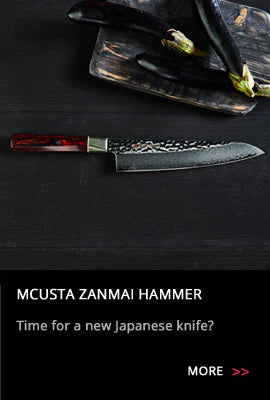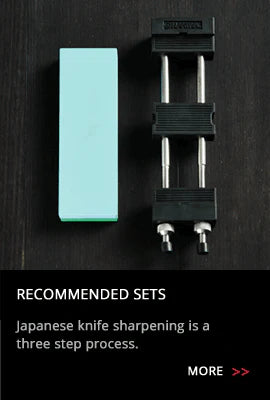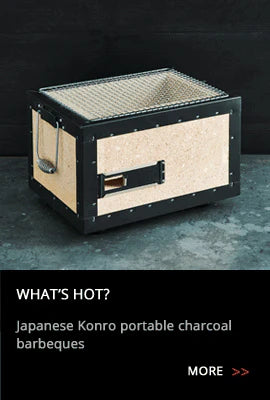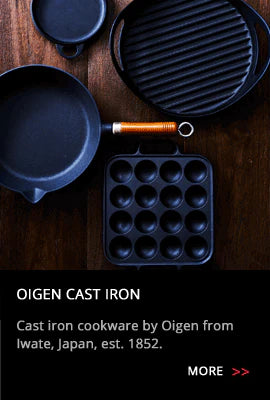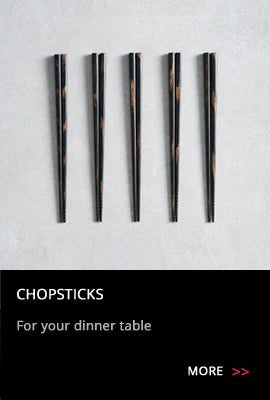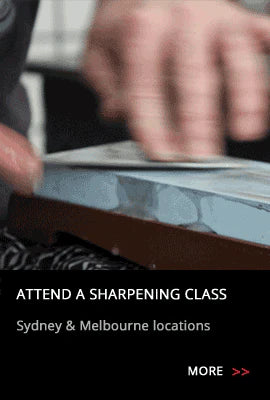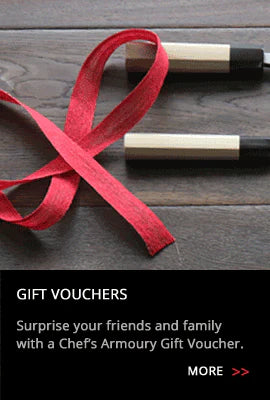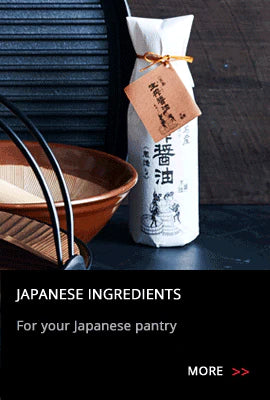100% CARBON STEEL KNIVES
- Never put in the dishwasher. The harsh chemicals and hot temperature will ruin the quality of the blade and deteriorate the handle.
- This knife is 100% carbon steel, due to the nature of carbon steel this knife will tarnish and form a patina. This is to be expected and is nothing to worry about. The patina also helps protect against rust.
- Do not leave wet on the bench or the knife may rust. Dry thoroughly after hand washing and do not store unless fully dry. Use a paper towel to dry the blade instead of a teatowel as kitchen cloths tend to leave the blade slightly damp. Store away from humidity.
- Do not cut through bones, frozen foods, coconuts or extremely dense items like seeds, crackling, woody stalks. A Deba (filleting knife) is the only exception for fish bones but certain techniques are used to stop it from chipping. Always aim for the joint in the bone and be aware that some fish have very hard bones i.e. snapper.
- Always cut with a smooth action and never twist the blade, sideways pressure will damage the blade.
- Avoid acidic foods is possible as they promote rust. If you do cut acidic foods rinse your knife under running water directly after use.
- Foods such as onions, garlic, chives, artichokes and cabbage encourage a black patina. If you do cut these items and want to prevent the patina, rinse your knife under running water directly after use.
SHARPENING AND MAINTENANCE - KATABA
- Never use a honing steel on a kataba / single bevel knife. Damage may be irreversible or extremely difficult and costly to bring the blade back to its original shape.
- Only use Japanese waterstones to sharpen your knife, never on a hot grinder or belt sander. Find a reputable sharpener experienced in single bevel blades. Chef's Armoury offers a postal knife sharpening service.
- DO NOT use a pull through sharpener of any description.
- We highly recommend a protective layer of camellia oil on the blade after use. Apply after washing and drying.
- Any rust should be removed immediately so it doesn't spread. Use rust cleaner for light rust or rust eraser or fine grit sandpaper for heavier rust.
EXTRA TIPS
- Kataba blades have a much thinner bevel. Improper care and mistakes may result in chipping.
- Don't cut directly on hard surfaces such as a benchtop; stainless steel sink; plate or chopping boards made from glass, ceramic, bamboo, corian and other hard substances. An endgrain chopping board or soft plastic chopping board is best.
- Remember your knives do have limitations and are not indestructible. Do not use your knife as a screwdriver, can opener, jimmy, hammer, oyster opener or chisel. (You can buy all of these tools at your local hardware store for much less).
- Store knives in the original box, a wooden sheath (saya) or on a knife magnet or knife block. Don't put a plastic or leather sheath on the blade as it will rust if any moisture is left on the knife.
- Don't let your damp blade rest against dissimilar metals for a period of time as it may encourage Galvanic corrosion.

